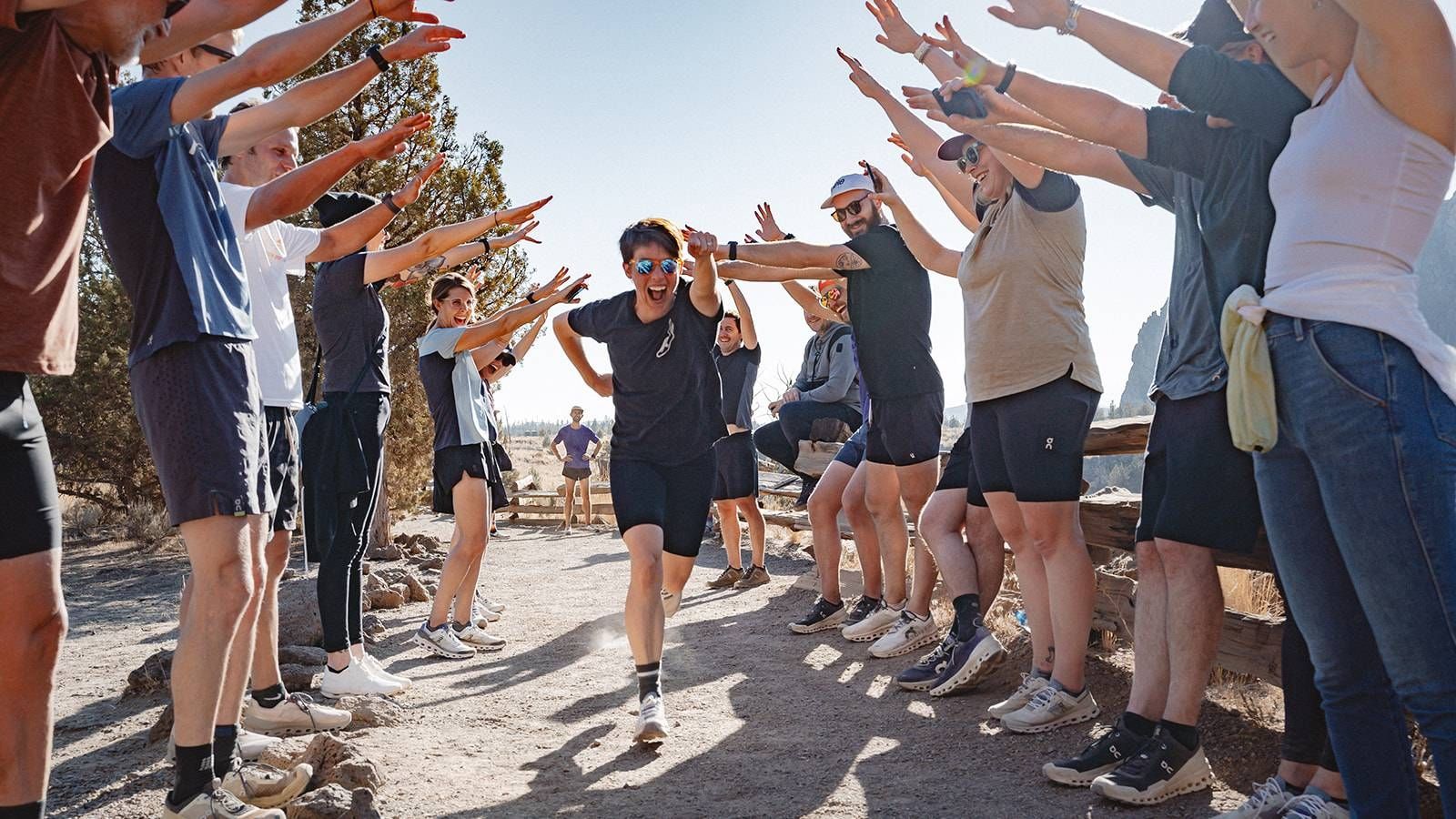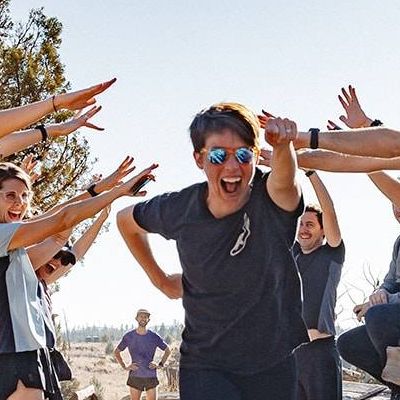Plog along with the Low Impact Alliance

Photo credit: On and Samantha Weald
Plogging is a combination of jogging with picking up litter. The word comes from merging the Swedish verbs, plocka upp (pick up) and jogga (jog). The LIA’s guide provides insight into everything a retailer needs to know about initiating a plog event, which the alliance hopes will help run specialty retailers across the nation to activate a plog or other local environmental cleanup event in their communities during Earth Month. The LIA will also supply interested retailers with a free Plogging Kit that includes gloves, bags, and a scale to weigh the collected trash. Plus, the LIA plans to host a plog at Runchella in May.
“The ultimate goal of the LIA is to truly be an alliance among all stakeholders in the running industry from consumers including running groups and organizations to retailers (small and large) and brands,” said Alex Sessa, a member of the all-volunteer LIA Leadership Team that steers program design and development, partnerships, and marketing strategy.
“Ideally, this alliance would work towards changing the way the industry as a whole perceives sustainability, which would allow for better and more open communication surrounding why this paradigm shift is necessary if we want future generations to be able to participate in a sport we’re all passionate about,” added Sessa, who works for Salomon as the Denver Epicenter Leader focusing on soft goods such as footwear, apparel, and hydration.
He's been volunteering with the LIA for over a year, because he feels as if “it’s our responsibility as leaders in the running industry to be the agents of change when it comes to addressing the concept of sustainability and how it’s communicated to consumers and retailers from the brands and their representatives.”
He believes that “Retailers have the ability to shape how brands produce, transport, and market products. If retailers are more aware of what the environmental impact of a certain brand action is, they can advocate for something that might have a lesser impact (e.g., a retailer might urge a brand to use recyclable product packaging, use minimal packing materials, and/or opt for a more carbon-efficient shipping method).”
He and two other members of the LIA’s leadership team presented on “Building a Sustainable Strategy” in the run specialty retail space at The Running Event in Austin this past November. The alliance has several webinars available on YouTube, presenting solutions to important questions faced by run specialty retailers daily, such as how to discuss sustainability with brand representatives and recycling at a retail level. New webinars are planned quarterly, and will include industry leaders as panelists.
The LIA is working with the University of Minnesota School of Public Health to conduct a pilot study with run specialty retailers in the Twin Cities metropolitan area to shape a proposed program that would work with run specialty stores nationwide to conduct greenhouse gas inventories. The goal is to establish a run specialty greenhouse gas emission baseline, future benchmarks, and industry certification threshold.
When asked about the easiest and most impactful ways that people in the running industry can make their business practices more sustainable environmentally, Sessa replied, “This is a complex question to answer because there are so many different components that go into the move towards more sustainable business practices.”
At the same time, he began to list many options that are already available to retailers and brands, such as switching to LED from incandescent lighting, using free turn-key recycling solutions and shipping and producing products that incorporate a higher percentage of recycled materials or can be repurposed.
To learn more about the LIA, go online to www.lowimpactalliance.com and follow on Instagram at @lowlimpactalliance.
Some content and resources may not be visible because you're not logged in. If you are a current member, use the login form below. Not yet a member? Join today!
More from the RIA
-
Letter from Executive Director
-
Q1 2026 Huddles
-
Submit Your Running Specialty Hall of Fame Nomination by February 9th
-
2026 RIA Board and Executive Team
-
Letter from the New RIA Board President
-
2026 Summit Retailer Registration is Open!
-
TRE Activations
-
A letter from the Executive Director - Never Static and Always Moving Forward.
-
November is National Run Safety Month - Learn How to Merchandise your Store
-
PDC Update: Version 2.0 Brings Major Improvements
